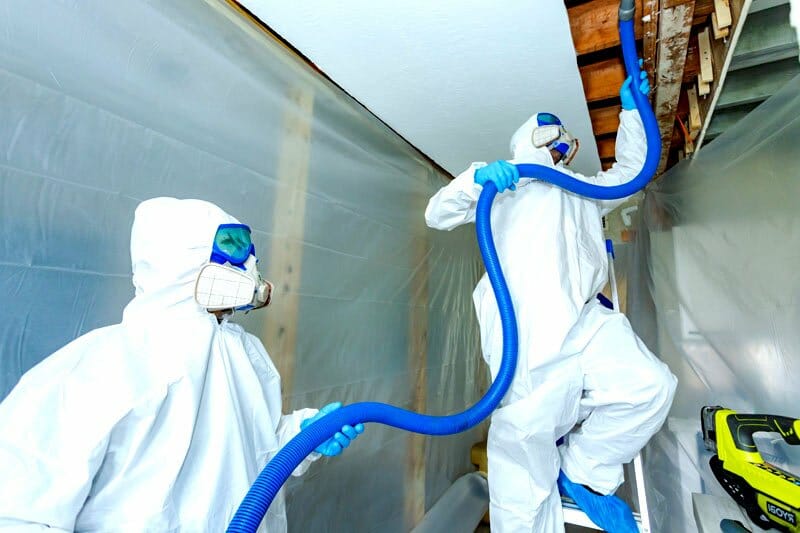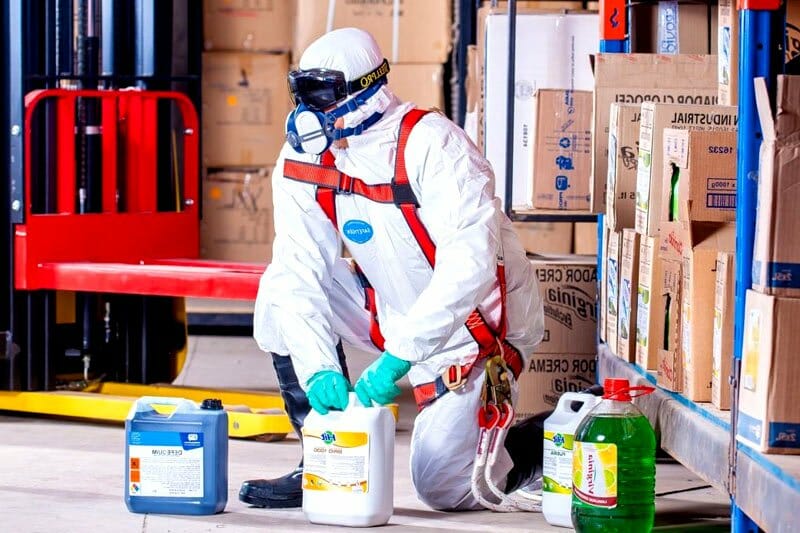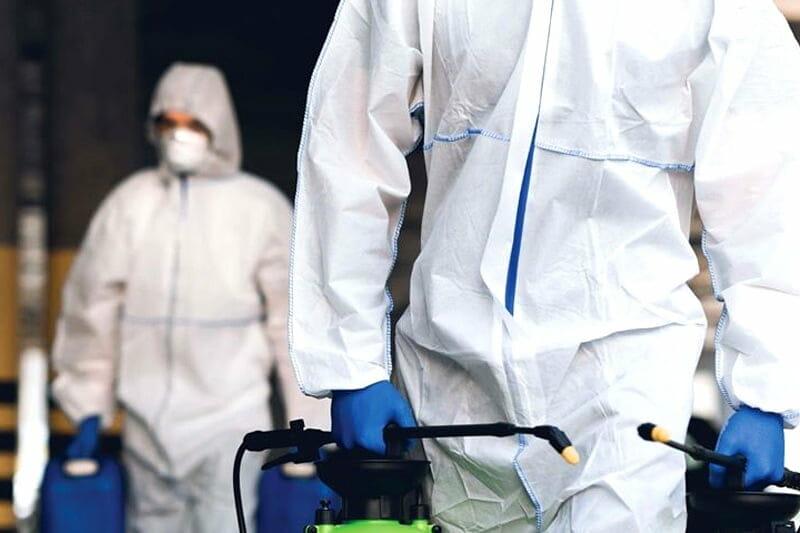In October 2012, Hurricane Sandy severely affected New York State, causing widespread flooding and a storm surge that peaked at a height of 13 feet. Unfortunately, this disaster was exploited by companies specializing in mold removal.
The New York State Labor Law’s Article 32 serves to protect consumers in response to Hurricane Sandy wherein a number of mold companies took advantage of the affected businesses and homeowners.
Since it has been implemented, all companies that conduct mold inspections and remediations are required to follow the new protocols and are required to have certain certifications.

What we cover
ToggleNew York State Mold Laws
Article 32 of the New York State Labor Law creates a protocol concerning licensing requirements, as well as minimum work standards for companies and professionals in the mold inspection and remediation industry.
In the new law, there are three main components created by the Mold Program:
Training
Contractors will be required to have appropriate training before being licensed to perform mold assessments, mold remediation, or abatement services as a way to protect consumers
Licensing
- Advertising, and performance of mold assessments or mold remediation will not be allowed for contractions without the required license.
- This exempts businesses and homeowners who are performing mold assessments and mold remediation in their own properties.
Minimum Work Standards
The Mold Program also established minimum work standards for both mold companies and licensed professionals. This includes:
- Prohibition of performance of both assessment and remediation on the same property by the same individual as a way to protect against fraud
- Require an independent mold assessor to define the scope of the remediation work to protect against fraud
- Enforce US EPA standards on the identification of disinfection products and related items
- Provide personal protective equipment to employees and personnel as deemed necessary
- Completion of a post-remediation assessment
Based on this law it will be unlawful for any professional or individual to perform any mold-related processes without meeting the minimum requirements, or achieving the exemptions that apply.
Exemptions:
- If a residential property owner performs the mold assessment, mold remediation, or abatement on his/her own property
- An employee of the property owner performs the mold assessment, mold remediation, or abatement that does not have more than four dwelling units
- A managing agent, employee, or owner performs the mold assessment, mold remediation, or abatement on a commercial or residential property of more than four dwelling units. However, this shall not apply if the involved individual is engaged in the business of mold practice for the public
- A local, federal, or state unit and/or employee who performs mold assessment, mold remediation, or abatement
While these exemptions may exist, state-regulated standards are still in place, and the negligence of the performing individual can still be held accountable for compliance. Thus, basic minimum training can still be necessary.
According to the Mold Program, it will be unlawful for any person or company to advertise, hold, and perform procedures as a mold assessor, remediator, or worker unless they are issued a mold license by the Commissioner.

New York Mold Disclosure Guidelines
Currently, the state of New York does not have any legislation or any regulation that requires landlords to disclose high levels of mold growth in their properties to their tenants.
Apart from any requirement of disclosure, landlords shall answer questions concerning plumbing, humidity, and ventilation to their potential buyers or tenants whenever they put a property for rent or sale.
New York Rules Concerning Mold in Rental Properties
Although the law concerning mold in rental properties is vague and does not require the landlord to disclose the mold growth, there are still a set of rules that they must follow concerning rental properties. The following rules are:
- Landlords that own three or more apartment buildings of any size where a tenant or occupant has asthma should keep their apartments free from mold, as per landlord-tenant laws.
- While there are no laws in the New York state that addresses the landlord’s liability in mold prevention and mold remediation, tenants can still report landlords who refuse to respond to solving mold problems.
- Tenants can contact the city’s health and housing departments if the mold issue has made it dangerous for the tenant’s health, or has made the property inhabitable.
- If the landlord remains unresponsive and negligent of the reported mold problem, the tenant can take the concern to the court. This can also be done if the city health and housing department’s solutions are inadequate.
How Long Does a Landlord Have To Fix a Mold Problem in New York State?
If the tenant has reported the mold issue to the tenant, and the landlord has not responded or refuses to respond after at least seven days, the tenant has the right to withhold rent.
Since landlords are bound by state law that they should provide their tenants with a habitable and conducive living environment, tenants have the right to appeal rent withholding.
Moreover, cases about mold in rental properties can be taken up to court only if the landlord’s negligence includes a refusal to respond to the complaints and reports of their tenants.
However, the tenant still has the option to take initiative in doing the cleaning themselves and have the repair costs deducted or reimbursed from their rent. This concept, also known as “Repair and Deduct” is not an uncommon solution.
Who To Call for Mold Inspection
Mold can cause or worsen pre-existing illnesses, especially those with underlying respiratory problems. This can put some tenants at risk for severe reactions. Health symptoms that are triggered by mold usually disappear after they are removed.
Although mold issues can be fixed by the property owner or the tenant, you can opt to hire a professional if you are sensitive to the mold. In doing so, make sure that the contracted professional is abiding by Article 32 Mold Law.
What Should You Do Before Hiring a Mold Professional?
Get Multiple Bids
First, for mold assessments, make sure each contractor that you reach comes to the site and bids on the same work as the other contractors.
Understand the Scope of Work
Before any of them performs their duty, you should clearly understand the scope of work and the services that the professional will provide before agreeing with the assessor’s plan for the mold issue.
Review the Assessor’s Plan
Review the assessor’s plan or scope, and make sure that job clearance, sampling, recommended use of chemicals, and other procedures are fit and feasible for your needs and the state rules.
In instances of mold remediation, the assessor’s plan must meet all the necessary requirements of the plan developed after the assessment. This plan should also include detailed instructions and procedures for how the hired professional will do the methods and cleanup work.
Ask for References
Moreover, you should seek the hired professional’s experiences and related references from previous clients and records. For instance, if you are not sure that the methods proposed are not in compliance with local rules and protocols, you should seek other contractors and contact the authorities concerned.














